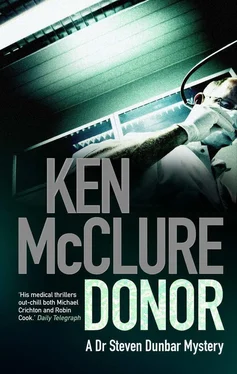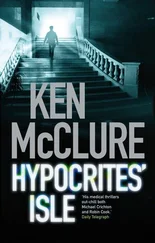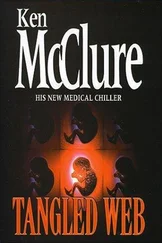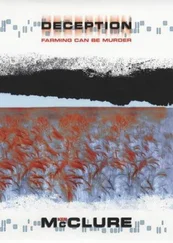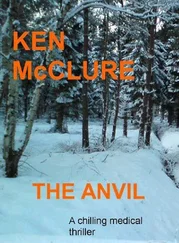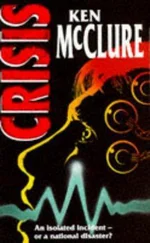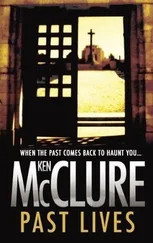Ken McClure - Donor
Здесь есть возможность читать онлайн «Ken McClure - Donor» весь текст электронной книги совершенно бесплатно (целиком полную версию без сокращений). В некоторых случаях можно слушать аудио, скачать через торрент в формате fb2 и присутствует краткое содержание. Жанр: Триллер, на английском языке. Описание произведения, (предисловие) а так же отзывы посетителей доступны на портале библиотеки ЛибКат.
- Название:Donor
- Автор:
- Жанр:
- Год:неизвестен
- ISBN:нет данных
- Рейтинг книги:4.5 / 5. Голосов: 2
-
Избранное:Добавить в избранное
- Отзывы:
-
Ваша оценка:
- 100
- 1
- 2
- 3
- 4
- 5
Donor: краткое содержание, описание и аннотация
Предлагаем к чтению аннотацию, описание, краткое содержание или предисловие (зависит от того, что написал сам автор книги «Donor»). Если вы не нашли необходимую информацию о книге — напишите в комментариях, мы постараемся отыскать её.
Donor — читать онлайн бесплатно полную книгу (весь текст) целиком
Ниже представлен текст книги, разбитый по страницам. Система сохранения места последней прочитанной страницы, позволяет с удобством читать онлайн бесплатно книгу «Donor», без необходимости каждый раз заново искать на чём Вы остановились. Поставьте закладку, и сможете в любой момент перейти на страницу, на которой закончили чтение.
Интервал:
Закладка:
Sheila’s journal went on to record her departure from Medic Ecosse, her fall into ill health, the subsequent diagnosis of her cancer and then her husband’s and the full hell of radiotherapy and chemotherapeutic treatment. Dunbar felt exhausted when he finished reading. He now knew Sheila Barnes to be a woman worthy of respect and a credit to her profession. Despite her shoddy treatment at the hands of the Medic Ecosse authorities there was surprisingly little anger or bitterness against those who had chosen to ignore her allegations and who had dismissed her as a misguided neurotic. The only time she showed any signs of spleen was when she thought an Omega patient was getting more attention than her dying transplant boy. She wrote of ‘mercenary toadies falling over themselves to chase the cheque-book’.
Dunbar closed the book and rubbed his fingers lightly over the cover for a few moments before getting up to pour himself another drink. He wondered what he was going to tell Sci-Med in his first report due at the end of the week. A couple of days ago, before he had met the two nurses, it would have been easy. He’d have reported that the nurses’ allegations were probably without foundation. His own inspection of the set-up at Medic Ecosse had shown it to be a centre of medical excellence, well organized, well managed and under no pressure. It was just an unfortunate coincidence that two transplant patients had experienced fatal but non-specific rejection problems.
Now things had changed. He couldn’t dismiss the nurses’ claims as being neurotic or malicious or even, more kindly, as the result of over-involvement with their patients. His computer search for other such cases, and its failure to come up with any, was also a factor that had come back into play. He wouldn’t be returning to London just yet. He would simply have to report that his investigations were continuing.
Ingrid was already in the office when Dunbar got in next morning. ‘How was your afternoon?’ she asked.
Dunbar looked at her inquiringly, then remembered telling her he was going to see the sights of Glasgow. ‘Very interesting,’ he replied.
‘I’m afraid I couldn’t get you an itemized costing for the Omega patients but I did manage to get some more information on what they were in for and when.’
‘That was good of you. I’m obliged.’ He took the file and slipped it into his briefcase.
‘What’s the plan for today?’
‘I thought we might take a look at the figures for the Radiology Department. I thought the running costs were a bit high in proportion to patient charges.’
‘You think patients should be charged more for their X-rays?’ asked Ingrid.
‘Or overheads should be cut. Maybe you could get a printout of staffing levels in Radiology and their rates of pay?’
‘Of course. Anything else?’
‘I’d like to take a look at the unit, get a feeling for the place, see what facilities they have. Would you contact the head of department and ask when would be a convenient time?’
‘Will do.’ She picked up the phone.
‘Dr Svensen says any time you like,’ she said a few minutes later. ‘They’ve got the service engineers in this morning, so they won’t be taking patients until this afternoon. You couldn’t have picked a better time.’
‘Good,’ replied Dunbar.
‘Want me to come with you?’
‘I don’t think so. Why don’t you concentrate on getting the figures and I’ll have a poke around on my own.’
Dunbar resolved to make the visit to Radiology take up most of the morning. He was running out of ideas to keep Ingrid occupied. There were several areas of the hospital he had not yet been to so he thought he would remedy this by taking a circuitous route to Radiology. He had wondered about a staircase leading down from the ground-floor corridor. There was no signboard nearby. As he walked along the ground-floor corridor on his way to Radiology, he decided to take the opportunity to find out where the stairs led.
Glancing over his shoulder to check that there was no one behind him, he turned off and ran lightly down the steps. He found himself facing double doors. He pushed one gently and it opened. There wasn’t much in the way of light down here below ground level, so it took a moment or two to accustom his eyes to the gloom which was only occasionally relieved by overhead bulbs protected by wire cages. Leading off the narrow corridor, which seemed to run the entire length of the building, there were a number of doors. Dunbar tried them in turn.
The first three led to store-rooms, all of similar design and furnished with rows of metal shelving coded with an alpha-numeric system and bearing a variety of spares for medical equipment, along with a variety of consumer items in large cardboard boxes. The fourth door opened into a dark room which immediately struck Dunbar as being cold and damp. He recoiled slightly as he felt cold air brush his cheek. It was the hospital mortuary. There was no outward sign but the plain white walls, the simple wooden cross on one of them and the solid fridge door told Dunbar immediately. The small size puzzled him until he reminded himself that this was a private hospital — selected procedures for selected patients. People weren’t supposed to die here. He released the clasp on the fridge door and swung it open. A waft of cold air chilled his face. There were only two body trays inside, a lower and an upper one, both unoccupied.
There was, however, an interesting-looking door to the right of the fridge. It didn’t have a handle. He investigated and found a button to the right of the frame. He pressed it and the door slid open to reveal a lift. It was narrow and deep, designed to accommodate a horizontal coffin, he concluded. He checked the buttons inside; the lift went to all floors. He tried to work out in his mind where the mortuary was in relation to the building above, and concluded that it was at the back about two-thirds of the way along. He remembered seeing an anonymous-looking green door in about that position on the ground floor when he’d parked his car round the back.
It made sense. If you were unfortunate enough to die in Medic Ecosse, your body could be taken directly to the mortuary, using the custom elevator, instead of being wheeled along main corridors. You would lie in the fridge until the appointed undertakers came with a coffin for you, and, using the back door, your body could be removed with the minimum of public display.
Dunbar closed the mortuary door and continued along the corridor. More store-rooms, including one for gas cylinders. They stood in rows, secured to the wall by chain-link guards. He tried to remember the colour code for them but couldn’t do better than a black body with a white top for oxygen. He supposed the others were anaesthetic gases. He had almost reached the far end of the corridor, hoping to find a way back up to the ground floor, when he came upon a closed set of double doors. He opened one and stepped into a small ante-room leading to an inner scrub room and another set of double doors. A number of plastic aprons were hanging on pegs and white Wellington boots stood in a row below. He pushed open one of the inner doors and found the light switch. Several fluorescent tubes stuttered into life. It was a post-mortem suite, tiled and smelling slightly of formalin and antiseptic.
Dunbar thought the table seemed unusually large. He approached it and ran his fingers along its smooth metallic surface and drainage channels leading down to the large stainless steel sink at the foot. There was a puzzling system of wheels and wires in the ceiling above it, but apart from that everything seemed normal. Trays of instruments sat on a long bench by the wall, gleaming knives and scalpels, saws and drills and a chain-mail glove used by pathologists to wear on their non-cutting hand to avoid accidental injury from the knife they were using. Dunbar shivered although it wasn’t cold.
Читать дальшеИнтервал:
Закладка:
Похожие книги на «Donor»
Представляем Вашему вниманию похожие книги на «Donor» списком для выбора. Мы отобрали схожую по названию и смыслу литературу в надежде предоставить читателям больше вариантов отыскать новые, интересные, ещё непрочитанные произведения.
Обсуждение, отзывы о книге «Donor» и просто собственные мнения читателей. Оставьте ваши комментарии, напишите, что Вы думаете о произведении, его смысле или главных героях. Укажите что конкретно понравилось, а что нет, и почему Вы так считаете.
